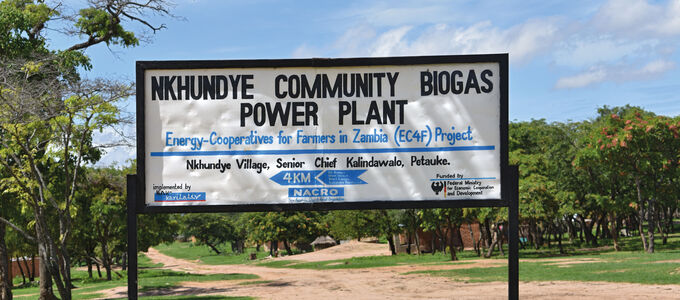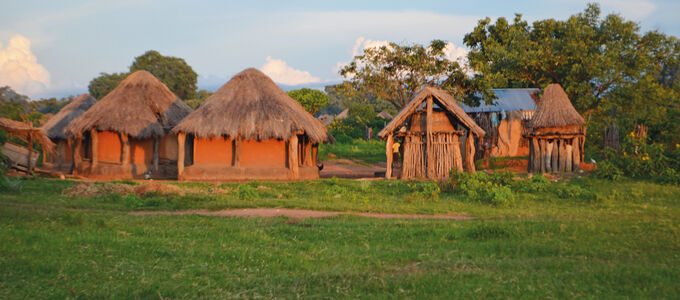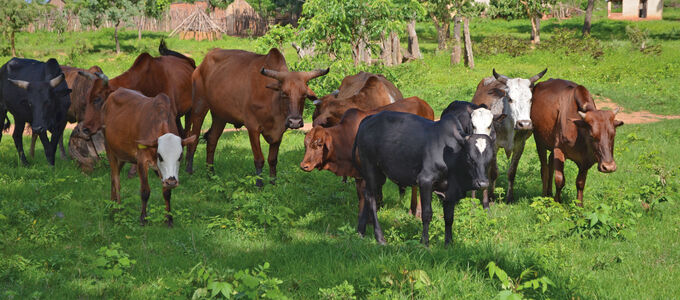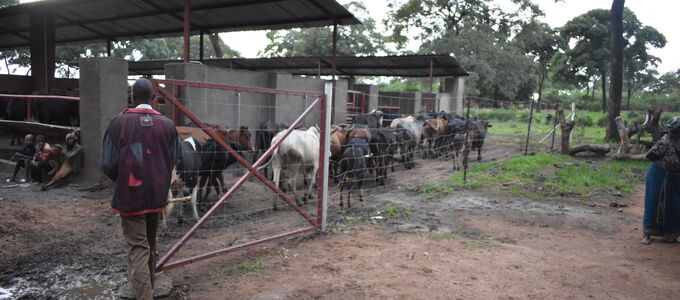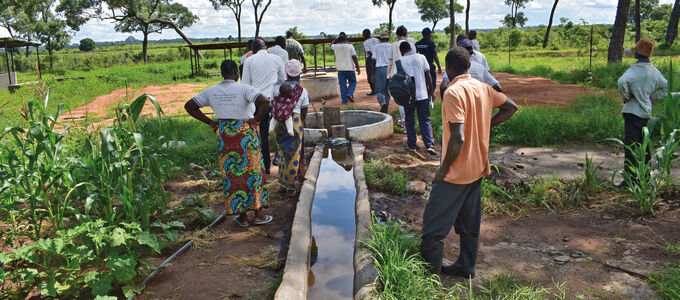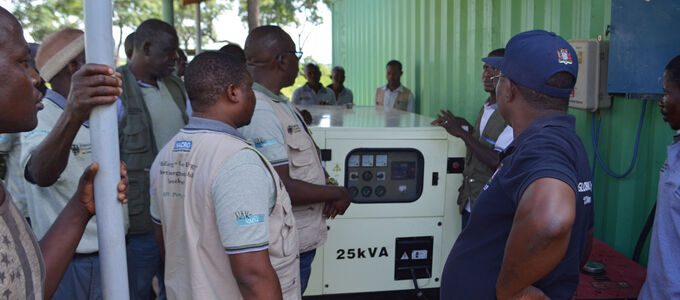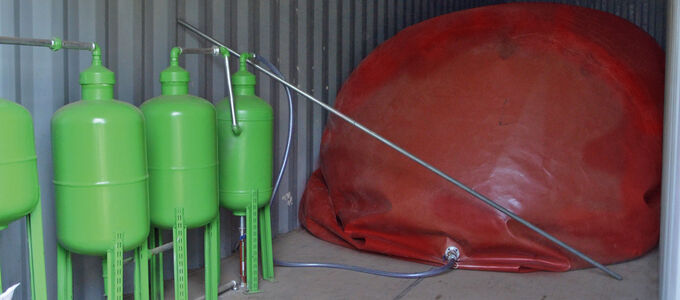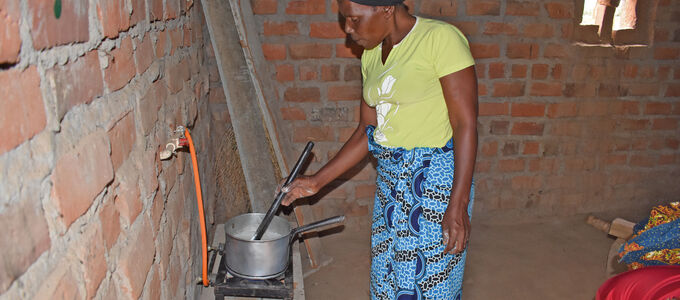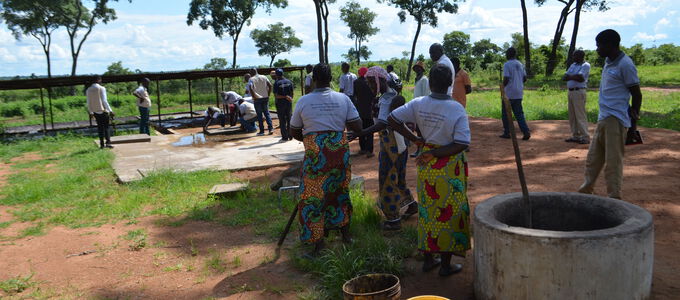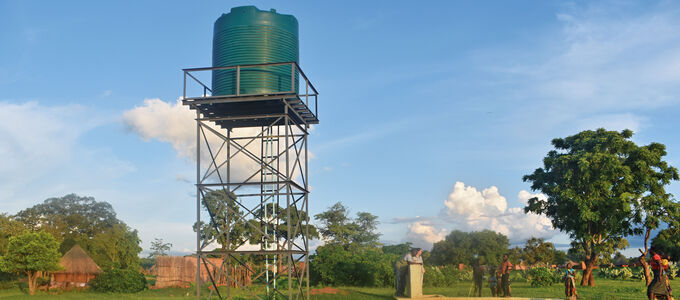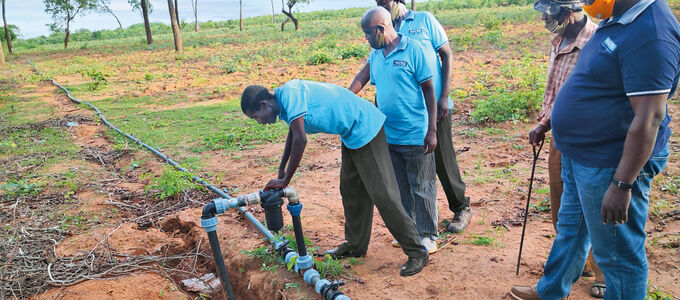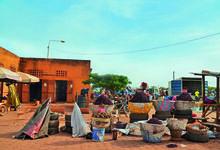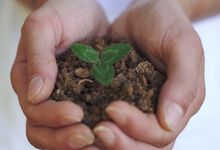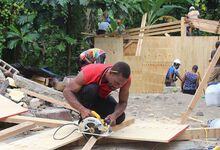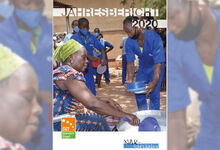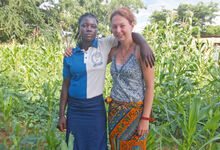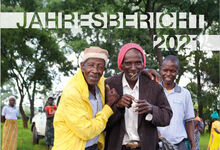When cow dung turns into energy
Renewable energy: what is supposed to bring about a turnaround in Europe is a first step towards generating electricity in regions of sub-Saharan Africa. A joint project of two New Apostolic relief organisations in Zambia shows the immense benefit for everyone.
The daily hot meal is prepared over charcoal or firewood and the oil lamp lights up the small house in the evening so that homework can still be done. In large parts of sub-Saharan Africa this is everyday life. Not having access to electricity or other forms of energy affects about 770 million people worldwide. In order to achieve economic progress also in regions where people still rely on alternative fuels, decentralised sustainable energy systems are to help bring development forward.
For a hot meal
Until a few months ago, the people in the village of Nkahundye naturally used wood, charcoal, or diesel to generate electricity. The village is located in the eastern part of Zambia in the Petauke district, which is home to around 240,000 people. The main source of income for many families is from farming. Besides the cultivation of maize, tobacco, cotton, and vegetables, cattle and goat farming is widespread in the region. Because there are no machines, the people still do most of their farming by hand. Taking care of the livestock, sowing, fertilising, or watering the crops is something that the whole family is involved in: even the children have to take on tasks at an early age. In the mornings you can see the smallholder farmers driving the herds of cattle to the pastures. For some years now, it has become increasingly difficult to find good grazing areas and watering holes for the animals.
Because of the climate change, rains are failing more and more frequently. This has an impact on agriculture: if water is scarce this also has an impact on the growing of vegetables or fodder. Small farmers in the village reported that the animals have become thinner and give less milk. This has a negative impact on the family income and nutrition.
When cow dung turns into electricity
In order to strengthen the families economically, the New Apostolic relief organisation NAK-karitativ started a pilot project in collaboration with NACRO in 2018, the charity of the New Apostolic Church Zambia. With the installation of a water supply system and the construction of a biogas plant with a communal barn for the cattle, the basis for energy production was created. The barn was designed in such a way that the manure from the cattle could be fed directly into the biogas plant. The village’s 166 cattle produce about 500 kilograms of manure every day, which, thanks to the biogas plant, can supply gas to twenty households in the village. In fact, the gas is also used to generate electricity for the irrigation system, for the light in the barn, and the feed processing machinery. The houses have been provided with gas stoves to replace the traditional cooking on open fires. For the women and girls this is a big help, because they no longer have to go to the forest or the market every day to get firewood or charcoal. And the families are no longer exposed to the harmful smoke, and the residue of the processing of the manure into biogas can be used as fertiliser. Word of the benefits quickly spread to the surrounding villages. There, too, many families would love to be connected to a biogas plant as well.
Access to clean water
NAK-karitativ also set up landscape irrigation with three boreholes, a water reservoir, and two water extraction points. In addition, an irrigation system was created to supply the four large arable fields of the village. Electricity for the irrigation system is produced by a generator, powered by biogas from the plant.
The farmers reported to NAK-karitativ that crop yields have increased significantly and new plant species are now also being cultivated. The animals can be better cared for and the income of the families has increased significantly in recent months. Where charcoal was once used, gas is now available for cooking. “It’s hard for us here in Western Europe to imagine the relief and excitement of people at just having a gas stove or a water point on their doorstep. It is still a far lower standard than ours, but for girls and women especially it means a great relief in terms of the hard physical work, but also in terms of time. Now they have a few more hours in a day to do other things such as going to school or doing other work, for example. This strengthens families in the long term and it promotes their self-determination,” says Tatjana Augustin, managing director of NAK-karitativ. And the benefit to the ecosystem is tremendous because people no longer have to go and collect wood for cooking and burn it day after day.
A successful project
In March 2022, the project was completed in a solemn ceremony and handed over to the village community. The pilot project is not to be the last such project because the huge interest from other villages shows that the need among the people is great. They want this change and the development that comes with it.
This report appeared for the first time in the German-language magazine Unsere Familie, issue 20|2022.
Article info
Author:
Date:
Keywords:
Nadine Beckmann
28.02.2023
Africa,
Aid agencies,
Social commitment


